- Home
- Raymond Benson
Zero Minus Ten rbb-1 Page 4
Zero Minus Ten rbb-1 Read online
Page 4
“There was a car bomb in the business district—what, a week ago?”
“On the eleventh of June, just over a week, yes. What else do you know about it?”
“It was a solicitor visiting from England, wasn’t it? Someone in a large firm here.”
“Gregory Donaldson, of Fitch, Donaldson and Patrick. A partner in one of our most prestigious law practices.”
“Do we know who was behind the bombing, and why he was targeted?” Bond asked.
“An anonymous caller phoned Government House and claimed that the People’s Republic was behind it. Why Donaldson was targeted is still a mystery.”
“Why was Donaldson in Hong Kong?”
“I’ll get to that in a moment. You know about the two Red Chinese officials who were assassinated?” she asked.
Bond remembered. “Oh, yes. That was a few days later, wasn’t it?”
“The 13th.”
“Yes, ma’am, two officials from Beijing were killed in a shopping mall by a man dressed in a military uniform.”
“A British army uniform, to be exact. The two men were working with the local government on last-minute preparations for the changeover. They had taken some time off and were buying souvenirs or something to take back to China. Some loose cannon in uniform calmly walked up to the men, pulled out an automatic pistol, and shot them dead. Witnesses said the “officer” ran out of the store and disappeared into the crowd. All we know is that the man was certainly Caucasian.”
“There’s been a lot of tension over the past year. People have been waking up to what’s happening to them,” Bond said. “It had to come to a head eventually.”
“ ‘Waking up’ is only the half of it,” M said. “People are starting to panic. Something else happened in Hong Kong two nights ago that has escalated the problem.”
“What’s that?”
“A bomb exploded on a floating restaurant off Aberdeen, killing thirty-three people. All of them were important members of the British business community in Hong Kong.”
This was news to Bond.
“The report is probably on your desk. The first incident was disturbing, the second one was bewildering, but this third one has caused the PM to sit up and take notice. Something’s going on, 007, and it isn’t pretty. Fingers are pointing. There was another anonymous call to Government House the morning after the bombing.”
“China.”
“Right.”
“That’s it? Just ‘the People’s Republic of China?’ Nothing more specific?”
“There were allusions to some general in Guangzhou, north of the Hong Kong colony. His name is Wong. It was enough to get the rumour mill churning. The press got hold of it, and needless to say there is a lot of tension in the air. Anti-Communist groups are making themselves heard, and the democracy foes are just as loud. The PM has been talking with Beijing …”
“But the official party line denies all knowledge of the actions?”
“Correct, 007. And they are just as quick to accuse us of killing their two officials in the shopping mall.”
“Sounds like someone is stirring up trouble just before the takeover.”
“Well, there’s going to be trouble. Chinese troops are massing along the border, just above the New Territories. The Hong Kong people are afraid that they’re going to invade and do away with the idea of a peaceful transition. It didn’t help when a group of Hong Kong teenagers threw rocks at the soldiers. There was gunfire but no one was hurt. There was also some kind of panic-induced incident in one of the tourist areas in Kowloon just yesterday. The memory of Tienanmen Square is still very vivid.”
“Isn’t this a job for the politicians?”
“Normally it would be,” M said. “But something else has come up that interests me.”
She waited until Bond asked, “And what is that, ma’am?” The new M tended to have a flair for the dramatic.
“The three incidents—the car bomb that killed Donaldson, the assassination of the two Chinese men, and the bombing of the floating restaurant—are all connected to a multi-billion dollar international shipping and trading corporation that is privately owned and operated by a long-established British family in Hong Kong.”
FOUR
A BRITISH LEGACY
M PRESSED SOME BUTTONS ON A CONTROL PANEL TO HER RIGHT. THE ROOM darkened slightly and the Kandinsky painting slid up into the ceiling. A television monitor built into the wall flashed on, revealing the logo: EurAsia Enterprises Ltd.
“EurAsia Enterprises is one of the biggest shipping corporations operating out of Hong Kong,” M said. “You’ll find all the background you need in this file.” She gestured to a manilla folder on the edge of her desk. “Briefly, I’ll give you some of the details.”
Bond took the folder but didn’t open it. He gave his full attention to M.
“The company was founded in 1850, just a few years after Hong Kong was ceded to Britain at the close of the so-called First Opium War. How much do you remember about British colonial history, 007?”
Bond cleared his throat. “In a nutshell, the war resulted from China’s refusal to open ports to the West. I believe the catalyst was an incident in which the Chinese government in Canton seized a tremendous amount of opium from British traders and destroyed it.”
“Twenty thousand pounds, to be precise,” M added. “At the time, it was worth three million sterling. Opium trading was a ghastly business, but in the early nineteenth century opium was the world’s most valuable commodity. Be that as it may, the crux of the problem was as you said—China didn’t want to trade with the West. They had reluctantly allowed Canton—they call it Guangzhou now, as you know—and Macau to become the only ports open to the West. Our East India Company had a monopoly in Guangzhou until the 1830s, but the demand for Chinese tea, as well as silk and porcelain, was overwhelming.”
“It wasn’t easy for the traders,” Bond said. “I seem to remember that they were restricted to the fringes of the city, not allowed inside …”
“That’s right,” M said. “And all business had to go through the Cohong, a guild of Chinese merchants. Corruption flourished, and these constraints encouraged dreams of a base on the southeast coast of China where traders could operate freely. There was a trade imbalance and it greatly favoured China. The balance of trade in tea alone ran six to one in China’s favour. They didn’t particularly care for anything we had to offer, except silver, perhaps. China was under the impression that she didn’t need us.”
“And that’s where the opium trade came in …”
“Precisely. The traders discovered that there was a certain faction in China that desired Indian opium, and we were in the dubious position of being able to offer it. That was how several of our largest companies came into existence over there. In retrospect, I suppose, it was a nasty business; but it suited the mercantile ethic of the time. Opium traders shrugged off these scruples and maintained that trade, and the missionaries that followed, would ultimately benefit China. Well, the Chinese government became increasingly concerned about opium. Justifiably—it was an extravagant habit that ruined minds and morals—and it caused the trade imbalance to tip in our favour. Finally, in 1839, the emperor ordered the governor of Hunan Province to go to Guangzhou and end the opium trade. The British Chief Superintendent of Trade, a man named Charles Elliot, was ordered to surrender all of the merchants’ opium.”
“And he did.”
“That’s right, and the traders watched helplessly as the Chinese destroyed the opium that was the basis of their livelihood. One thing led to another, and skirmishes began. By 1840, an expeditionary fleet had arrived in Hong Kong with a mission to obtain compensation and an apology from China for the destroyed opium, and to secure a British foothold on the China coast.”
“It was rather a one-sided war, wasn’t it?” Bond asked rhetorically.
“Yes, China was ill-prepared to deal with Britain’s warships. It all came to a temporary end in 1841 with a treaty t
hat was never signed. The treaty promised compensation for the confiscated opium, permission for British merchants to return to Guangzhou, and the cession of Hong Kong Island to Britain. Neither side was happy with this outcome and the war continued into 1842, when the Treaty of Nanjing was finally signed and reluctantly accepted by China. The result was a hefty compensation in millions of pounds, as well as the opening of several ports to British trade.”
“And Hong Kong was officially ceded to Britain.”
“ ‘In perpetuity’ the treaty said,” M added. “Hong Kong became a British Crown Colony in 1843, and trade resumed. We don’t have to cover all of the history, but I suppose you know how we acquired Kowloon and the New Territories?”
“That was a result of the Second Opium War,” Bond replied, feeling like a schoolboy.
“Well, we prefer to call it the Second Anglo-Chinese War now,” M said with a shrug. “It was a result of a ridiculous mistake made in 1856 by Chinese officials. They boarded one of our ships, the Arrow, believing it to be a pirate vessel. A battle ensued, and another war broke out. It finally ended in 1860 with the treaty signed at the Convention of Peking. We got Kowloon with that one.”
“In perpetuity, once again,” Bond chipped in.
“Of course. Opium was officially legalized in China from then on until the start of the Second World War. China ended up making a tidy profit from the filthy substance, using it as an excuse for levying taxes. The big blunder on our part came some forty years later, when the Second Convention of Peking was held and a new treaty was signed. A larger chunk of land north of Kowloon, along with 233 surrounding islands, was leased to Britain for a ninety-nine-year term. As you know, this area became known as the New Territories.”
“Why was it not ceded in perpetuity?” asked Bond.
“Carelessness on the part of the British Foreign Secretary. He had hoped for an open-ended lease to be terminated by mutual agreement, but he ultimately agreed to the ninety-nine-year lease. I suppose that seemed like forever in 1898, when the treaty was signed.”
“And now that time has run out,” Bond mused. He recalled the historic agreement made between Great Britain and China in 1984. “Why did we agree to hand over Hong Kong and Kowloon in 1997? Why didn’t we just give up the New Territories and keep what was still legally ours?”
“Because Hong Kong and Kowloon depend on the natural resources that are derived from the New Territories. Without the New Territories’ abundance of fresh water and other utilities, Hong Kong Island would be extremely difficult to support. And, I think, there was a certain amount of guilt involved as well. Looking back, both sides felt that Hong Kong rightfully belonged to China. It was ceded under circumstances which weren’t entirely ethical. It’s a shame that everyone had to wait a hundred years to come to terms with that realization. The poor people of Hong Kong are now feeling the brunt of that mistake. After over a century of western and democratic rule, they are now faced with the prospect of life controlled by the People’s Republic of China. But enough of the history lesson—let’s get back to the topic at hand.”
M pushed a button on her desk and the picture on the monitor changed. The image of a Caucasian man appeared. He had black hair with streaks of grey, dark brown eyes, and looked to be in his late forties. His face was severe and cold.
“EurAsia Enterprises was one of the trading corporations that flourished in southeast Asia after the First Opium War. It was founded by an Englishman named James Thackeray. This is Thackeray’s great-great-grandson, the current CEO of EurAsia Enterprises. His name is Guy Thackeray.”
Bond knew very little about EurAsia Enterprises. “The company has branches all over the world?”
“Yes,” said M. “Toronto, London, New York, Tokyo, Sydney—they have a significant gold-mining operation in Western Australia—but they’re based in Hong Kong. That’s where Thackeray has lived all his life.”
“Funny,” said Bond. “I’ve never heard of him.”
“Thackeray’s not a very public person,” M said. “You can count on one hand the number of times he’s been to England. He rarely leaves Hong Kong, and if he does he only goes as far as Australia. There’s really nothing particularly sinister about the man. By all accounts he’s a perfectly respectable businessman. He’s forty-eight, never married, and lives quietly and comfortably on Victoria Peak. He was the only child and sole heir of his great-great-grandfather’s legacy, which was passed down from James Thackeray to his son, then to his grandson, and so on. Guy Thackeray became CEO of the company when he was twenty-eight.”
“What did he do before that?” Bond asked.
M chuckled. “He was a magician.”
“What?”
“He had an act that he started when he was a child,” M said. “A magic act. He performed it on floating restaurants, in nightclubs, wherever … He even had a short-lived television show in Hong Kong in the early sixties. Sleight-of-hand stuff, optical illusions, sawing women in half … you know what I mean. He gave it up once he reached his twenties and entered the family business in pursuit of a ‘real’ career. Although he was independently wealthy, I suppose he felt he must live up to the family name and all that. So he learned the business and was very good at it. After his father died, he became CEO. Never bothered with show business again. And up until now, the only black mark we had against the man is that he apparently enjoys playing high stakes mahjong in illegal betting parlours.”
“So why are we interested in him?”
“Gregory Donaldson, the lawyer who was killed in the car bomb blast, was Guy Thackeray’s solicitor,” M said with raised eyebrows.
Bond nodded thoughtfully. The picture changed, revealing a photo of Guy Thackeray with Gregory Donaldson.
“On June the 10th, Donaldson arrived in Hong Kong on an urgent mission to meet Guy Thackeray. Donaldson’s partners here in London were not privy to what it was about, only that it had something to do with the privately owned EurAsia stock. Thackeray owns 59 per cent and the rest is owned by other Board members. On June the 11th, Donaldson was killed.”
“Interesting,” Bond said.
“That’s not all,” M continued. “The two visiting Chinese officials from Beijing who were shot by the alleged British army officer were shopping at a mall owned by EurAsia Enterprises. In fact, the mall is part of the huge complex that houses the company on Hong Kong Island.”
“So they were killed at EurAsia’s corporate headquarters?”
“That’s right,” M said.
“And the floating restaurant business …”
“That bomb killed the entire Board of Directors, the chairman, and all the other executive officers of EurAsia Enterprises—everyone but Guy Thackeray. It was a company party of some kind. The chairman, a fellow named Desmond, was retiring. Guy Thackeray was there, made a speech, presented Desmond with one of those distinguished service awards, then disappeared. At first, everyone thought he had been killed in the blast as well, but he was found at EurAsia headquarters working in his office two hours later, completely oblivious to what had happened. He’s been cooperating with the local authorities in their investigation into the blast, but it’s still very early. No one has any reason to suspect he might be involved. From what I can gather, most people believe the bomb might very well have been meant for him, and to hell with the other people who were killed.”
M paused a moment then continued, “There’s one more piece of the puzzle you haven’t heard about. Three nights ago, the Hampshire Constabulary Tactical Firearms Unit busted a drug-smuggling operation in Portsmouth. Some Chinese were caught unloading a ton of heroin off a cargo ship. That ship just happened to be owned by none other than EurAsia Enterprises.”
Bond nodded. “The Chinese were Triad, I would wager.”
“You’re absolutely correct, 007,” M said. “They were all killed in the raid, but a quick investigation revealed they were part of a Triad known as the Dragon Wing Society. It’s an offshoot of the San Yee On Triad.”
Bond frowned. The San Yee On was one of the largest Triads in the world. Triads had existed in China for centuries and were the most misunderstood, most complex, and most dangerous criminal organizations to infect the modern world. Chinese Triads made the Sicilian Mafia look amateurish. They usually originated in Hong Kong, but their tentacles reached into nearly every Chinese community in the world. More formidable than the Tongs, the Triads had in the last fifty years become responsible for most of the worldwide drug trade. They also had a hand in illegal arms distribution, prostitution, gambling, illegal immigration, and other activities associated with organized crime. A Triad’s oath of loyalty was absolute, and a member would rather die than reveal any of his organization’s secrets.
“So you think that EurAsia Enterprises is involved with this Triad?” Bond asked.
“That’s what I want you to find out,” M said. “A lot of British subjects were killed the other night. At first I thought it could very well be coincidence that all the events in Hong Kong were connected with this otherwise very respectable company. But when the raid in Portsmouth occurred and we learned that the company’s ship was smuggling heroin to Triad members, that’s when we became alarmed.
“If you can, 007, I want you to find out who is behind these terrorist acts and stop them. All Britain needs is a war with China on the eve of giving back Hong Kong! And that’s what we’re going to get if the pattern keeps up. You’re to fly to Hong Kong this afternoon—there’s a flight leaving at 2:30 and it arrives tomorrow morning. They’re eight hours ahead of us, as you know. Our man in Station H will meet you at the airport, a fellow by the name of Woo. I understand he’s been with the service for years.”
“I know of him, ma’am,” said Bond. “Never met him, though.”
“He’ll be your guide and contact. How’s your Chinese?”
“I speak Cantonese pretty well, ma’am, but I’m not so fluent in Mandarin.”
“Well, I hope you won’t need it. Although I dare say that we’ll be hearing more Mandarin in Hong Kong next year.”

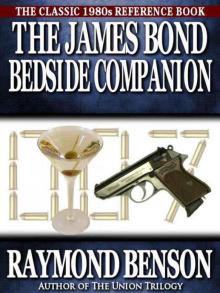 The James Bond Bedside Companion
The James Bond Bedside Companion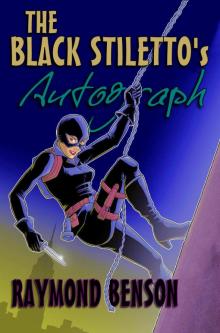 The Black Stiletto's Autograph
The Black Stiletto's Autograph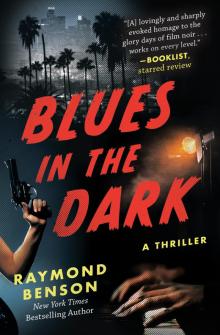 Blues in the Dark
Blues in the Dark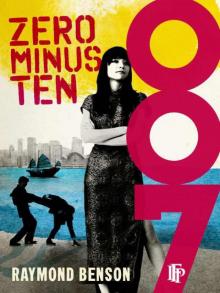 Zero Minus Ten
Zero Minus Ten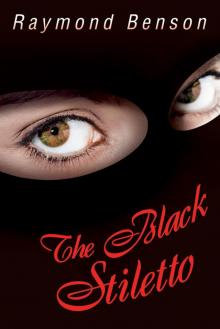 The Black Stiletto
The Black Stiletto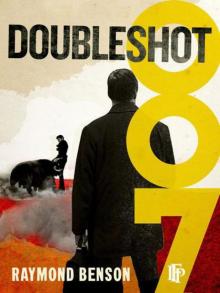 Doubleshot
Doubleshot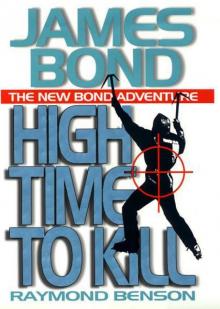 High Time To Kill rbb-3
High Time To Kill rbb-3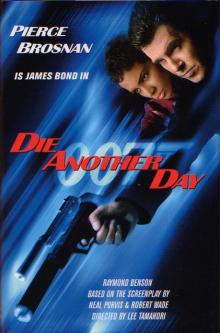 Bond Movies 07 - Die Another Day
Bond Movies 07 - Die Another Day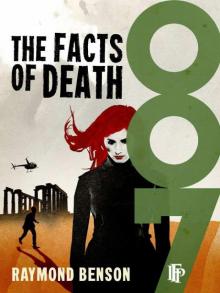 The Facts Of Death
The Facts Of Death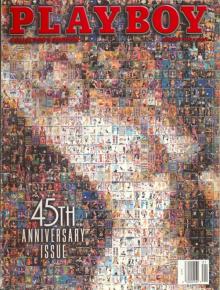 Midsummer Night's Doom
Midsummer Night's Doom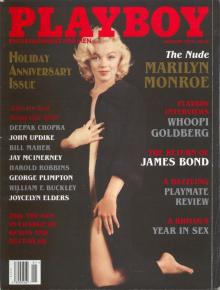 Blast from the Past
Blast from the Past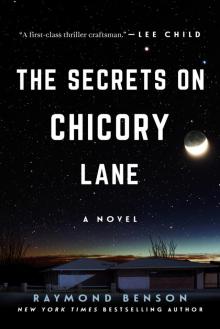 The Secrets on Chicory Lane
The Secrets on Chicory Lane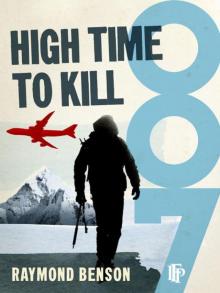 High Time To Kill
High Time To Kill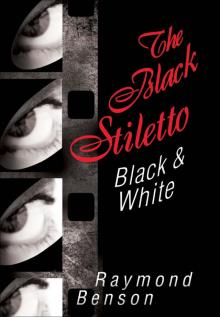 The Black Stiletto: Black & White
The Black Stiletto: Black & White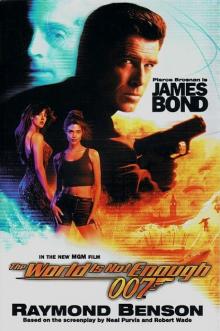 The World Is Not Enough jb-1
The World Is Not Enough jb-1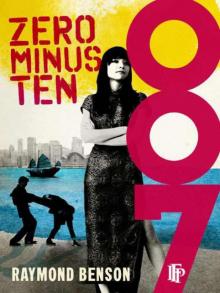 Zero Minus Ten rbb-1
Zero Minus Ten rbb-1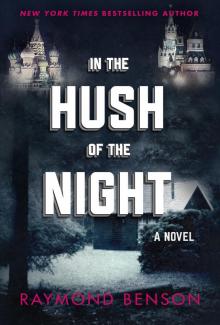 In the Hush of the Night
In the Hush of the Night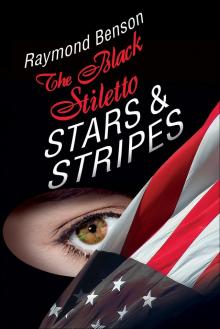 The Black Stiletto: Stars & Stripes
The Black Stiletto: Stars & Stripes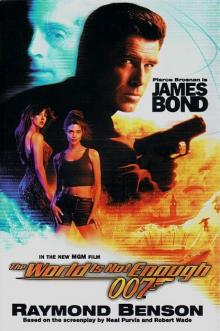 Bond Movies 06 - The World Is Not Enough
Bond Movies 06 - The World Is Not Enough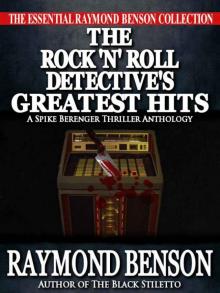 The Rock 'n Roll Detective's Greatest Hits - A Spike Berenger Anthology
The Rock 'n Roll Detective's Greatest Hits - A Spike Berenger Anthology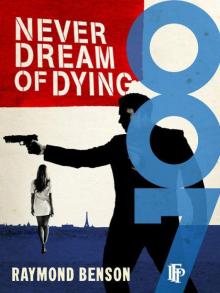 Never Dream Of Dying
Never Dream Of Dying